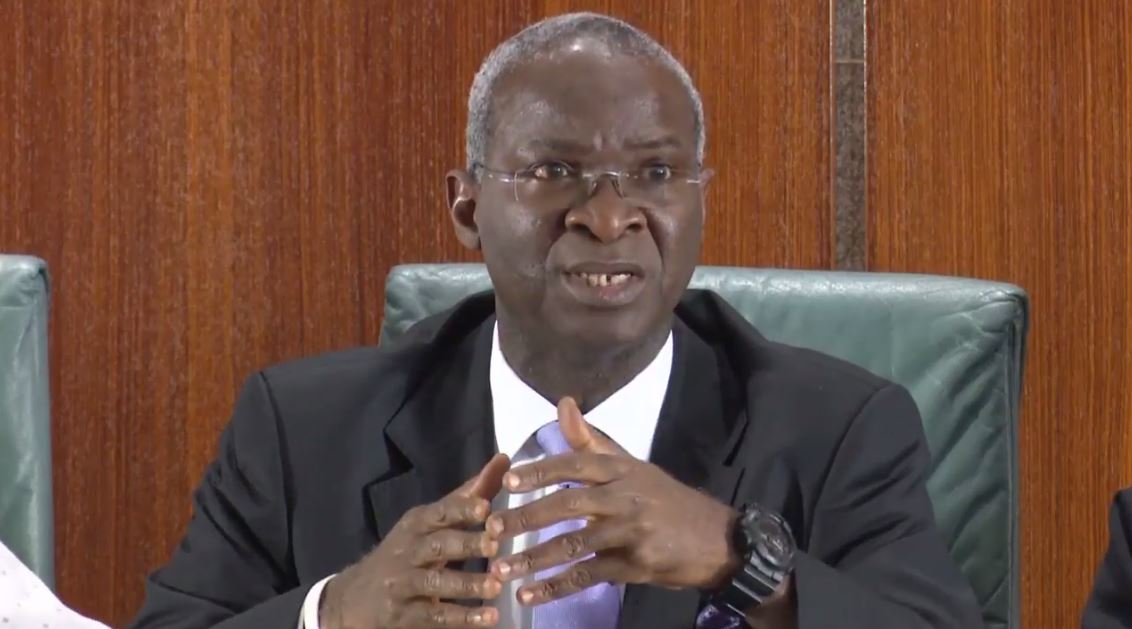To access affordable homes, the Minister of Works and Housing, Mr. Babatunde Fashola has urged the National Council on Lands, Housing and Urban Development to propose a legislation that could curb advance rent payments in the country.
Fashola, who made the suggestion at the 9th meeting of the council in Jos, Plateau state, pointed out that properties are not inaccessible or unaffordable because of the price alone, but because of the mode of payments.
He said: “A N10 million flat would probably be affordable and accessible, if payment is spread over five to 10 years as against having to be paid at once. The same would be for renting a N2million house, if payment were made monthly in arrears or six-month in advance, as against paying three-years rent amounting to N6 million rent.
“My recommendation is to consider intervention by way of a legislation that limits how such advance rent can be demanded or paid for renting accommodation. The sanction for non-compliance would be a self-enforcing legislation in that the state apparatus such as the courts would not help any party to such a contract get relief, as it would be a patently illegal contract.”
The minister said such initiative had been tried in other jurisdictions and it helped to improve accessibility and affordability. He added that many empty properties in urban centres remain inaccessible or unaffordable because of some of these factors, and could be unlocked, if the council acts.
Where rent for business premises or individuals are due for renewal, he said, the landlords could give back, by accepting monthly, quarterly or half-yearly rent instead of one, two or three years rent in advance.
He added that the risk of defaults can be secured through bank guarantees or insurance bonds provided by the tenant, adding that where rent has fallen into arrears, it is possible to emulate what the Federal Government did through the Central Bank of Nigeria to reschedule payment on loans, by re-scheduling the payment for the tenant in affordable terms instead of pursuing eviction.
To access affordable homes, the Minister of Works and Housing, Mr. Babatunde Fashola has urged the National Council on Lands, Housing and Urban Development to propose a legislation that could curb advance rent payments in the country.
Fashola, who made the suggestion at the 9th meeting of the council in Jos, Plateau state, pointed out that properties are not inaccessible or unaffordable because of the price alone, but because of the mode of payments.
He said: “A N10 million flat would probably be affordable and accessible, if payment is spread over five to 10 years as against having to be paid at once. The same would be for renting a N2million house, if payment were made monthly in arrears or six-month in advance, as against paying three-years rent amounting to N6 million rent.x
“My recommendation is to consider intervention by way of a legislation that limits how such advance rent can be demanded or paid for renting accommodation. The sanction for non-compliance would be a self-enforcing legislation in that the state apparatus such as the courts would not help any party to such a contract get relief, as it would be a patently illegal contract.”
The minister said such initiative had been tried in other jurisdictions and it helped to improve accessibility and affordability. He added that many empty properties in urban centres remain inaccessible or unaffordable because of some of these factors, and could be unlocked, if the council acts.
Where rent for business premises or individuals are due for renewal, he said, the landlords could give back, by accepting monthly, quarterly or half-yearly rent instead of one, two or three years rent in advance.
He added that the risk of defaults can be secured through bank guarantees or insurance bonds provided by the tenant, adding that where rent has fallen into arrears, it is possible to emulate what the Federal Government did through the Central Bank of Nigeria to reschedule payment on loans, by re-scheduling the payment for the tenant in affordable terms instead of pursuing eviction.
“Notably, all of these are matters of voluntary action by property owners and a matter of conscience. And perhaps the question to ask is whether we can do for ourselves or give to one another what we ask Government to do for us or give to us,” he said.
Fashola implored private companies and individuals to give back some of what they control to citizens in the way that Federal Government has given back to citizens to cushion COVID 19 pandemic.
Speaking at the forum, the Plateau State governor, Simon Lalong, said the state approach to effective and efficient housing delivery has been anchored on best practices, that are globally acclaimed to provide solutions to all the underlying causes of under–development, which are hinged on processes and practices.
Lalong said the state has also adopted Public Private Partnership (PPP) in the acquisition of land and preparation of layouts that are made available for a greater number of people with all the guarantees.
Source : The Guardian




